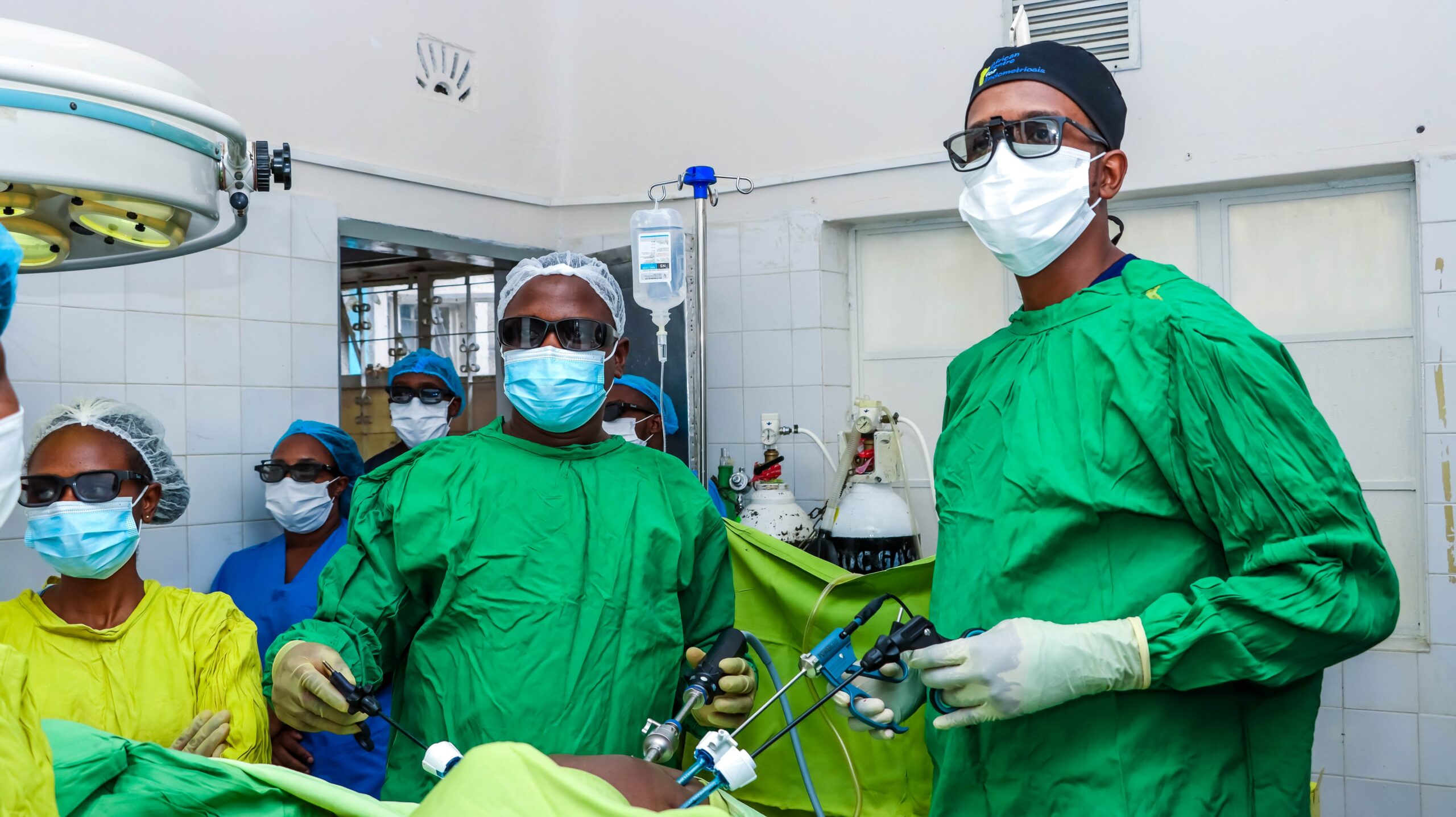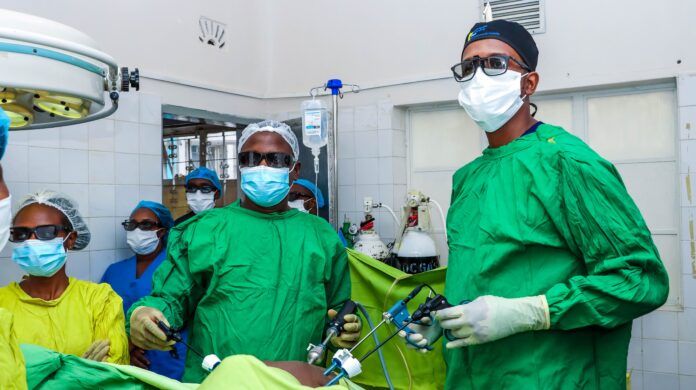By Jane Mugambi
Kirinyaga County, Kenya: 20 endometriosis patients from different parts of the country will benefit from free laparoscopic surgery.
The surgeries are expected to be performed at the Mt.Kenya hospital- A faith-based hospital based in the outskirts of Kerugoya along the Kerugoya-Karatina highway.
The 20 are part of 60 patients who have been screened and turned out to be severely affected by endometriosis. The detection has been after a series of scans and examinations of their bodies.
According to Dr. Joseph Njagi of Maple Grove Gynaecological Centre, a consultant gynecologist laparoscopic surgeon and a founder of laparoscopic mashinani, based in Kerugoya town have been able to single out 20 patients that need urgent medical intervention to deal with endometriosis.
According to the World Health Organisation (WHO), Endometriosis is a disease in which tissue similar to the lining of the uterus grows outside the uterus. It can cause severe pain in the pelvis and make it harder to get pregnant.

Endometriosis can start at a person’s first menstrual period and last until menopause.
With endometriosis, tissue similar to the lining of the uterus grows outside the uterus. This leads to inflammation and scar tissue forming in the pelvic region and (rarely) elsewhere in the body. The cause of endometriosis is unknown.
There is no known way to prevent endometriosis. There is no cure, but its symptoms can be treated with medicines or, in some cases, surgery. It causes a chronic inflammatory reaction that may result in the formation of scar tissue (adhesions, fibrosis) within the pelvis and other parts of the body. Several lesion types like superficial endometriosis, found mainly on the pelvic peritoneum cystic ovarian endometriosis (endometrioma) found in the ovaries, deep endometriosis found in the recto-vaginal septum, bladder, and bowel in rare cases, endometriosis has also been found outside the pelvis.
Symptoms for people with endometriosis are bloating, chronic pelvic pain, heavy bleeding during periods or between periods, trouble getting pregnant, nausea, fatigue, depression, or anxiety.
The surgeries are being done in March marking Endometriosis month; at at least four to five surgeries will be done cutting costs that are approximately Sh 350,000 to Ksh one Million.
“We are treating approximately 20 women for free who have been suffering from endometriosis and are supposed to undergo surgery, the cost has been waived so as to give them hope in life,” said Dr. Njagi.
Njagi said the country experiences a severe shortage of gynecologists with Kirinyaga County alone having six gynecologists.
This has led to a big disparity in the patient-gynecologist ratio considering that one out of ten women will be detected to suffer from endometriosis; making it hard for women in rural areas to access specialized services such as endometriosis excision specialists.
“There is a need to bridge the gap between gynecological services and the patients requiring the service so as to offer accessible care and service to the underprivileged patients and women in the rural areas” Njagi added.
He also pointed out that the level of awareness for endometriosis is also very low, at below one percent calling upon stakeholders to join hands and save women, and girls before it is too late.
Njagi pointed out that the main challenge is when patients seek medical care from general practitioners (clinical officers) who are not knowledgeable on endometriosis urging women to seek medical assistance from gynas.
“We have a challenge because the majority of women and girls we have attended to after getting their history have passed through a clinical officer for general examination, by the time they realize the condition is serious, it is late, women please first consult a gynecologist first” Njagi emphasized.
He cautioned that there have been myths surrounding endometriosis including where young women are advised to get pregnant as a cure for endometriosis while others are advised that painful menses is a normal phenomenon which is untrue; Taboos that prevent women from talking on issues surrounding menstrual health also make things worse as these symptoms remain unreported.
“With the right skills, we are able to pick endometriosis using an ultrasound scan. You will find ultrasound scans in many health facilities. But a certain level of skill is required to pick up the changes that we see in endometriosis,” he added.
He advised that early diagnosis and detection make it easy to manage and contain the disease’s complications saying that Endometriosis can take six to ten years for the symptoms to manifest, a long time of patient suffering, It can penetrate to other body organs like the intestines, the diaphragm, lungs, urethra and kidney causing discomfort and pain.
Dr. Njagi said he has been performing the surgery using an advanced endometriosis procedure-laparoscopic surgery where there is no role of open surgery.
“The advantage of using laparoscopy is that it magnifies the image. You have better clarity, less bleeding, better handling of tissues and you are able to see the disease and the risk of complications is minimal,” he explains.
There are other ways of treating and managing endometriosis like placing a patient on drugs where if the drugs fail to treat then surgery is the last option.
A beneficiary Peris Wairimu who had stayed with the disease for three years stayed with the symptoms and used to go for check-ups but after a series of screenings, the diagnosis revealed that she had endometriosis.
“I have had a lot of pain during my menses and it was like I couldn’t move,” she said.
She says more should be done in terms of awareness as many women in the villages who have the condition perceive it as just a mere pain during menstruation.














